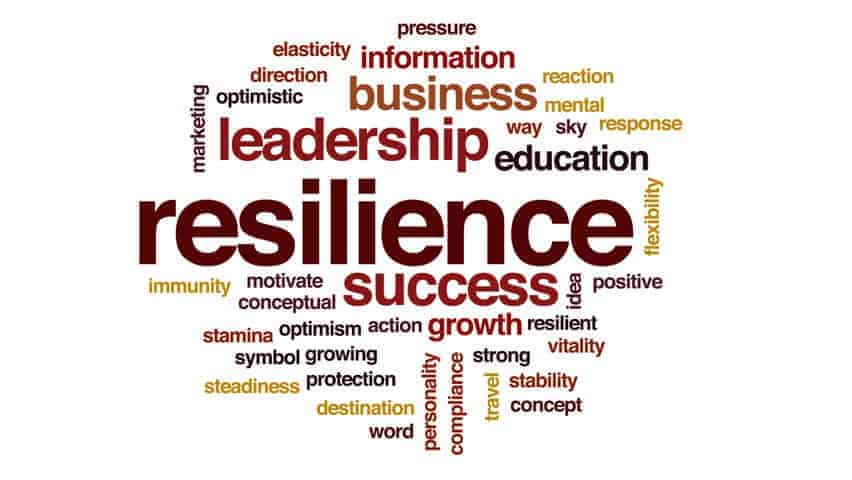Understanding Your Leadership Style Helps You Build Your Leadership Brand By: Jackie Robinson4/2/2024 It's not enough just knowing what your leadership style is. Understanding the attributes of your leadership style is where you can leverage your impact. The "way" you lead is what people remember about you most and is what creates your leadership brand.
Whether you identify as a transformational, authentic, situational, servant, or some other leadership type, understanding how you show up and represent yourself as a leader in that style is what you need to hone in on to develop your leadership brand. Leadership is not about the title per se but more so about your ability to influence and make a positive impact in that role. As you are intentionally building your leadership brand ask yourself, "How do I want people to experience my leadership?" Whatever your answer is to that question is what you need to focus on as you are building your brand. Developing a strong leadership brand is not just about climbing the corporate ladder, it's about how you influence others. Your leadership brand, good or bad, will be the legacy you create and leave behind. Why is cultivating a leadership brand important? It sets you apart. Leadership is not one-size-fits-all. Your unique style of communicating, collaborating, inspiring, and managing your team should be a representation of the leader you want to be known as, and others aspire to be. Your unique leadership brand can create coveted opportunities based specifically on your uniqueness. As you are defining your leadership brand think about what you do better than any other leader in your organization and how you do it better? Your leadership brand should be just as much about what you do as who you are. Your leadership brand begins with self-awareness. Understand your values, strengths, and areas for growth. Reflect on your purpose—why you lead and what impact you want to make. Authenticity is magnetic; people connect with leaders who stay true to themselves. Your leadership brand should evolve as you continue to grow as a leader but not completely change because you still want to represent your authentic self. Another important component of building your leadership brand involves building your network. You have to network with intent and strategy. Your network should be diverse, including peers, mentors, sponsors, and industry experts you admire. Some of the people in your network should be smarter than you, more experienced, and of course, well connected. It's true, it's not what you know, it's who you know that will get you ahead in life faster. Not only should you build these connections to enhance your leadership brand, you have to be deliberate about maintaining these relationships. Offer help and support to others in your network. Do this before ever asking for a favor. What value can you bring to those in your network? Reciprocate actions or gestures when it's possible. Show genuine interest in them and what matters to them. When it's appropriate, utilize your network to your advantage but always ask permission to use someone's name as a referral or in any capacity where you are seeking an opportunity. Respect and establish trust with the people in your network. Never take the people in your network for granted. Networking isn't just about collecting business cards. It's about building meaningful relationships. A strong, quality network amplifies your brand. Understanding your leadership style requires self-awareness. When you fully understand how you lead, your strengths and weaknesses, and how others perceive your leadership, you will be in a better position to create the respectable leadership brand you envision for yourself. A strong leadership brand opens doors. Make it a priority to strategically develop a brand that will make you stand out. What's your leadership style? What are you best known for as a leader? Share in the comments.
0 Comments
 Happy New Year SheBosses! I have a feeling that many of you will be elevating on multiple levels this year. Over the past four years, we have been reassessing, rebranding, and rebuilding. We have experienced changes in our careers, started new businesses, re-launched businesses, and all things in between. The number four represents support, stability, security, and consistency. Now that we have entered 2024, expect all those things to come to pass in your personal and professional lives. You have been laying the foundation for growth and development. Now it’s time to start building on that foundation. Every goal you reach this year will serve as a brick in the building of your own personal enterprise. Just like there are different shapes and sizes of houses on your street, everyone’s personal enterprise will be built differently and have its own structure. Therefore, don’t try to build yours like someone else’s. It’s never in our best interest to compare for similarities when it comes to building. Instead, you should compare to find out what you need to do to distinguish your brand and set yourself apart. As you are building your personal and professional brand and preparing to start knocking down this year’s goals, you should have guiding principles to help you focus on the right things. I want you to keep these three in mind:
As you elevate to new levels, your mindset should elevate as well. The three things I just mentioned will be a part of that mindset. What got you where you are now will not necessarily take you where you are trying to go next. That “next level” thinking is vital in phase 2024. Elevation creates separation. As you grow you will be separated from some of the things you may be familiar with or that you are accustomed to. They may have once served a purpose but are not necessary for the work you need to do now. There are some things and people that should remain where they are as you advance because there will be no place for them on this new level you have reached. As you grow, everything and everyone can’t go. Be bold and brave this year as you work towards making your dreams come true. Take more strategic, well-thought-out risks. Make that decision you have been avoiding. Do what you need to do for you. Go harder than you did over the last four years. Put in the work and you will reap the results. I’m rooting for you! Have a She-Bossy year!  Don't believe the hype! Playing nicey-nice may not get you too far. You have done all of that and what do you have to show for it? You played by "the rules" and where did that get you? Women are still overworked, underpaid, and left out. Women are still not receiving the equities they should. Not in pay, not in professional opportunities, or funding for their business endeavors. We have shown up as the status quo has deemed proper and appropriate for women in the workplace. The traditional norms that have been placed for women have been adhered to, doing what has been historically expected of them in an effort to "make it" , to still come up short, despite all the effort put forth. We resisted being assertive because we would be characterized as aggressive instead. We held back and didn't speak up about things we didn't agree with for fear of being labeled a trouble maker. We didn't expose our talents and let our light shine because we didn't want to make anyone else feel insecure and inferior. We didn't point out discrepancies or challenge decisions because retaliation was sure to happen. We didn't complain about our salary because we didn't want to make it worse for ourselves, hoping that our bosses would finally recognize our worth and give us the raise we deserve. We believed that complaining was not worth it because it wouldn't get us anywhere. Women have been doing all of those things, and more, for years. We have been told since childhood to be "nice girls". We have been conditioned to play nice and be nice, because that's what good girls do. Good girls listen. Good girls follow the rules. Good girls don't cause trouble or rock the boat. Good girls let the boys take the lead and be in control. I get what the intent was at that age but unfortunately, it carried over through the different stages of life and we have been held to that mantra, even when it was not in our best interest. Not only have women shaped their lives around those beliefs but many men still have those expectations. This is what has caused women to be the losing team almost forever. Unfortunately, being nice and playing by all of those old, biased rules will not always get women what they want and deserve. Women need to confident and comfortable enough to play hard, just like the guys do when they want to win. We have to show some grit to get what we want. It's time to get rowdy. No more playing nice! Let's:
There comes a time when we need to make the decision to not sit by and leave our fate in the hands of those who have systemically held us back for decades. That time is now. I'm tired of playing nice. Aren't you? It's time for us to really start winning!  We hear a lot of people talking about living authentically. I even speak, coach, and train authenticity myself. When you show up in life, to your job, and/or in your business you should be able to be yourself. So many times we have had to "shift" or "code switch" to assimilate into certain environments, conform to a non-inclusive culture, or to make other people feel comfortable. That is not authenticity. If you are bubbly and upbeat, you should be able to display that, if you are outspoken, you should not have to feel muzzled. If you like bright, vibrant colors, you shouldn't have to change your wardrobe to match the wardrobe of your colleagues; just use good judgment and tone down when appropriate. If you prefer natural hairstyles, curly, braids or locs, you should not straighten your hair or wear a wig if that is not who you are or what you like. You get my point, right? But listen, being authentic comes with accountability and responsibility. You can't show up late to work or meetings all the time, because you are "always late" and that's "authentically" who you are. You can't curse everyone out at the board meeting because none of them agree with your proposal and "cussin'" is how you normally get your point across outside of business and you are just being "authentically you". You can't keep blaming "the way you were raised" on your bad behavior and claiming " that's just how you are". No ma'am and no sir. Even with authenticity there are boundaries, especially if you are a professional. You can still be true to who you are and control when, what, and where. You don't have to give all of who you are at all times. Authenticity means what you do give and what you do show.....is real. It does not mean that every element of who you are has to be displayed in every space, in every situation. This past weekend during the NavigateHER conference that me and my cohost worked passionately on developing and executing, the subject of authenticity came up a couple of times. One of those times was during the VIP session with Dallas Mavericks CEO, Cynthia Marshall. She said "you have to be authentic to a point; some of that stuff needs to be left at home", LOL. It was funny when she said it but we all knew what she meant. I agree with her. She told the truth. Some folks use the term or act on the premise of authenticity loosely, inappropriately, or irresponsibly. As I have said before, you get to decide how you show up each day. That's powerful! Just think about what your day entails, who you will be interacting with and in what context and present those authentic parts of yourself that are appropriate for that particular setting or occasion. Leave the rest of the authentic you at home, in the car, on the bus, the subway, or at the door. I'm sure there is another space where all of that authenticity will fill into perfectly. You are who you are but you must still be accountable for how you show up. You've heard it before. "There is a time and place for everything". Be sure that you are being responsibly and strategically authentic!  It’s not always what you say, but how you say it. The language you use could be diminishing your credibility as a leader. Leaders communicate a lot of things to a lot of people,, on a regular basis. But what are they really saying when they speak? Many don’t realize just how much language impacts perception and effectiveness of a message. Some language restricts the ability to truly connect with the listener or make the point that you are really trying to make. In fact, some language may project you as weary when you need to be seen as strong. Women, in particular, should be cognizant of the words they use. Being modest, accommodating, and passive is the way women were taught for years, starting in their toddler years. We continue to be judged by these social norms as we grow into adult professionals. We are still expected to "tone it down", "smile more", "act like a lady", and use a more submissive tone. The very things that are expected of women by social default or the same things that deem women as weak and unable to lead with authority and get results like a man. This type of conditioning still shows up for many women in the way we communicate as leaders. To ensure you are using power language in your leadership conversations, be sure to eliminate these 5 phrases from your messages: 1. “I think”. When you are speaking from the role of a leader, it is important that you are believable. This builds trust. You need to start believing and stop thinking. You sound more convincing when you say “I believe” rather than “I think”. When you say “I think”, you sound unsure of yourself. Example: -“I think this new software will help us streamline our processes and increase productivity.” -“I believe this new software will help us streamline our processes and increase productivity.” 2. “I guess”. This phrase is sure to communicate that you are not confident in what you are about to say. The best thing to do is eliminate it altogether and just state what would have been said right after that. Example: -“I guess we’re going to adjust our marketing strategy to increase our visibility in the 24-54-year old professional woman market. -“We will adjust our marketing strategy to increase visibility in the 24-54-year old professional woman market. 3. “In my opinion”. When you are conducting business, or in a position to influence a decision or secure support, your opinion is not what your audience wants to hear. They want to hear facts. Opinions have no place in high-stakes meetings, life-changing conversations, or when someone is looking to you for a solution. Eliminate that phrase. Replace with phrases like, “according to the budget report”, or “statistics show”. These phrases are letting your listeners know right away what your source of information is and that it is not just an opinion that has not merit. Example: -“In my opinion, we will fall short of our revenue projections for 2nd quarter by 15%.” -“According to the current budget report, we will fall short of our revenue projections for 2nd quarter by 15%. 4. “Could you/would you”. As a leader, not only is it necessary to inspire, empower and influence, you will also need to give direction and provide guidance. When you are delegating and instructing your team or whomever, it needs to be understood when a directive is being given and there are no options. When you use the phrase “could you” or “would you”, you are giving the receiver an option to do or not to do what you want them to do. You are also asking a question rather than making a precise statement. Example: -“Would you please email me a project update by 2:00 pm today?” -“Please email me a project update by 2:00 pm today. 5. “I”.- This is a big one. The word “I” is used excessively. By default, when we are the speaker, we use the word “I”. It makes sense in many conversations, especially if the conversation is about you, specifically. However, there are just as many more times when “I” should not be included in your statements. When you use the word “I”, you are taking ownership of whatever you are discussing, even though you may not have anything to do with it, or not responsible for it. I think, I heard, I found out, all place emphasis on you rather than the real subject. Example: -“I have a problem with my team meeting deadlines.” -“My team has a problem meeting deadlines.” We all use phrases that could potentially water down the message we are delivering. None of us are perfect and may slip up here and there by using passive rather than active language. Being conscious of the words we choose and the way we speak is always a work in progress. The more we pay attention to what we say and the more deliberate we are about the language we use the better we will become at speaking influentially and confidently as a leader. It will soon be like second nature. There is so much more that can be said about power language and how it boosts your credibility and how it helps you to communicate more confidently. Hopefully, the examples provided gave you a general revelation of how the words we use make a difference when we are speaking. In order to act like a leader, you must speak like a leader. Jackie Robinson is founder of SheBoss Unlimited, a veteran success-strategist/coach, consultant author, and speaker. Contact her today today for a consultation. Be sure to connect: www.shebossunlimited.com Instagram: @she_boss_ultd Twitter:@SheBossU  You might be skilled, talented, educated, and brilliant. But, if you’re not resilient, persistent, and gritty, you’ll never maximize on those other attributes. Think about the three most successful people you know. I can guarantee you they had some challenges along the way. You may even know of them. What lead them to their success was they know how to get things done and persist past the obstacles. Every female leader and business woman has to have resilience. It’s not optional. In fact, it’s one of the three essential traits SheBoss Unlimited recommends for the ambitious and goal-driven woman. Women face more barriers and obstacles when trying to achieve professional goals. They also have more personal responsibilities in their personal lives that could be barriers to optimum performance. Therefore, being resilient enough to navigate through these circumstances is a must. Is resilience and grit the missing ingredients in your quest for success? Consider these techniques to increase your resilience and grit:
What could you do with your life if you were the most resilient and gritty person you knew? You’d be unstoppable! Build resilience and grit into your life and enjoy greater success!  The nation, the country, the world is in an uproar. An outcry like one that has not been heard since the Civil Rights movement is piercing through the ears of those who have chosen to not hear the voices of those who screamed and cried for justice and equal and fair treatment. Finally, someone other than those who are crying out are listening. What's Really Going On? So here we are. A man by the name of George Floyd, Jr., came along, on what seemed to be a divine assignment, to ring the alarm, again. With barely any air in his lungs, while pleading for his life, he was still able to ring the alarm. He died ringing the alarm so loudly that people responded across the world. As a result, there have been protests and demands for justice and equality. Subsequently, CEOs of Fortune 500 companies have spoken out publicly about the need for racial equality and justice and have committed to do their part in developing a solution. In fact, a Business Roundtable Committee has been created that is represented by CEOs of those Fortune 500 companies. It is exciting to see the world showing compassion for a group of people, real humans, who have been mistreated for hundreds of years. My hope is that all of the compassion does not fade away once the protests stop and that the universal fight against racism will continue with people of all races speaking up, standing up, and fighting for the cause. Who's At The Table? Now…..regarding this CEO Roundtable Committee. Currently, there are only 4 male CEOs of Fortune 500 companies who are black, and not one black female. Not one. So, that means the representation of the very people that the committee was created to find solutions for is severely deficient. There is a double deficiency; less than one percent of black people in this elite group, and no women at all in that miniscule number. This, in and of itself, is a racial equality issue. Major corporations and Fortune 500s need to be sure they are speaking out and creating solutions for change concerning racial equality within their workforces just as they are speaking out on what needs to be happening in this regard on the outside and in the community. What they are doing now is respectable but it would be honorable and commendable if they would take an introspective look at their internal operations and makeup of their leadership teams and demonstrate, with action, their commitment to equality by bringing more women to the table, and adding more black men. What About Women? But let’s talk about women, who are not represented at all. In 2019 alone, there were several reports released that indicate that companies with female leaders perform better. Those companies are also reported to have more employee engagement. That is likely because women are better at building and sustaining relationships than men. Having a C-suite that includes more women has been connected to having higher profits. Further, results from a research study conducted by The Female Quotient, Berlin Cameron, and the Harris Poll conclude that 50% of Americans want to work for a female leader, mainly because they believe the work culture will be better. Companies that are inclusive and practice gender diversity in all aspects of their company, including in leadership, are likely to outperform those who don’t. In addition, it has been reported over and over again, by various research companies, that women make a positive difference in business outcomes. So why is it that companies that are led by men are not jumping at the opportunity to set themselves up for greater success by bringing women in to decision-making and executive positions? Why is it that women still receive only a fraction of investment funds that are awarded each year when they own 4 out of 10 businesses in the United States, with African American women owning 64% of those? One reason is probably because there are not enough women in the decision-making seat when it comes to funding business ventures. What Will Create More Impact? So essentially, if the Business Roundtable Committee of big shot CEOs really wants to make an impactful difference, they would not only spend money to create training programs for other companies, organizations, and programs to combat systemic racism and inequality, they will take the first step by starting within their own organizations. They would level the playing field through racial and gender equity acts, and not just write an initiative to include in their annual report. Anyone can create an initiative. What really matters is the action that supports the initiative. There needs to be some action regarding gender equity. Women deserve equal opportunities in the workplace and in business. Let’s see how many companies will add this to their agenda. Injustice of any kind is a tragedy and I hope that George, Floyd, Jr. did not die in vain and that the legacy of his death will be evident in communities and within businesses and organizations. Jackie Robinson is Founder of SheBoss Unlimited, a women's empowerment and leadership development organization, and is also an advocate for gender equity and diversity and inclusion.  One of the best ways to make positive changes to your life is to take more risks. Life is more exciting and rewarding when you’re willing to put yourself out there and take a few chances. Plus, successful people take more risks than unsuccessful people. With a little practice, you’ll find that taking a chance or two adds immeasurably to your life. Consider these benefits of taking a chance and reap the power it gives you: 1. Taking chances enables you to move beyond your comfort zone. Nothing ever changes if you don’t do something new. It’s not easy to force yourself to do something that makes you feel uncomfortable, but it’s necessary if you want to experience growth in your life. Imagine the new adventures you can have! 2. Taking chances gives you power over yourself. Most people are risk-averse. It’s not in our genetic makeup to take chances. We’re like an antelope hiding in the tall grass, afraid to run out in the open for fear of being eaten by a lion. But there is tremendous power in taking chances. ○ When you can make yourself do things you don’t want to do, you realize that you’re conquering yourself. ○ This power extends to other areas of your life. You’ll find that you’ll do a better job of taking care of the mundane, but necessary, tasks in life. Taking action in the face of discomfort has a powerful impact on your life. 3. Taking chances gives you greater power over your life. You can take control of your life by taking steps to build the life that you desire. This gives you greater control. You can determine how you want to move forward, how you can overcome obstacles, and then do it. ○ Think of the people that never take chances. They’re much more susceptible to the randomness of life. External conditions have a greater effect. By taking a chance, you can avoid all this. 4. Taking chances reduces feelings of regret. More people regret the things they didn’t do than the things they did. Not taking chances in life leads to regret in your later years. You don’t want to be one of those people that looks back on his life and wonders, “What if?” 5. Your life is more exciting when you take chances. One of the most frequent complaints of adults is boredom. Do you live the same day over and over? The time flies by because there’s nothing to differentiate one day from the next. There are no victories or defeats, just the dullness that comes from monotony. ○ Add some spice to your life and have a reason to get up in the morning. Take a chance or two. 6. You’ll develop greater self-confidence and self-esteem. When you have control over yourself and your life, you feel pretty good about yourself. These qualities influence all the other parts of your life, too. 7. You have more opportunities. Taking chances exposes you to even greater opportunities. When you’re willing to act boldly, life seems to meet you halfway. It can be a great boost to the amount of success you experience in life. Taking chances can be scary, but ask yourself what you have to lose. Whether it’s approaching someone attractive or sending your resume to your dream company, what do you have to lose? Most risks have little potential for real loss. The threat is inside your head. For your best results, start slowly. Decide to take one small risk each day for a month and measure the effect it has on your life. Then you can move up to taking bigger chances as your tolerance for discomfort improves. "You miss 100% of the shots you don't take"-Wayne Grezky Discover the power of taking a chance. Start today! You’ll be glad you did! Jackie Robinson is the Founder of SheBoss Unlimited, a success-strategist, empowerment speaker, and published author. Instagram: www.instagram.com/sheboss_ultd Twitter: www.twitter.com/SheBossU Facebook: www.facebook.com/shebossunlimited  It was an opportunity of a lifetime and Beatrice Dixon took it. Target agreed to stock their shelves with her plant-based feminine hygiene products, The Honey Pot. What makes this even more of a significant triumph is that Bea Dixon is a black woman and The Honey Pot is 100% black-owned. In February 2020, Target released a television commercial featuring Bea and The Honey Pot products. This commercial was strategically released in honor of Black History Month. In the commercial, Bea states that the reason it is important for The Honey Pot to do well is “So the next black girl that comes up with a great idea, she can have a better opportunity.” After the commercial aired, the floodgates of hate opened. On one particular consumer review website, Trust Pilot, nasty, derogatory, racists comments were made about Bea and her products in the form of reviews. The reviewers called Bea a racist; used the “n” word; and vowed to never purchase her product, or never purchase it again…… all because she expressed that she wanted to be an inspiration to girls who looked like her, who will likely face some of the same struggles as she did when trying to bring her product to mainstream, and who have historically been discriminated against in general and in particular, the retail space and funding space. Oh, did I mention that it was a commercial that was intended to align with Black History month? That means “blackness” will be highlighted. That means the achievements of black people will be recognized and highlighted. I personally believe it’s pretty sad that we even have to have one month of the year to do this. It should be all year long, just like it is for every other race. The people who authored those reviews are the real racists, in my opinion. It seems as though some people from other races cannot stand to see black people have a moment of cultural elevation but they do it all the time. It’s a problem when we uplift our own race. They are quick to throw the reverse-racism card out there instead of understanding that there is some pretty ugly history that has facilitated the need for black people to do things to recognize our own race because we still don’t get the proper credit, recognition and respect we deserve from mainstream. In a perfect world, there would be no need for us to create platforms specifically to address our needs because it would automatically be done by the masses, just like with every other race. If those reviewers were honest with themselves and would strip themselves of the denial of the injustices minorities face, they would have never took offense to her message and would have understood exactly where she was coming from. Just because Bea is excited about being an inspiration to girls of her own race does not mean she is a racist. It does not mean that she does not wish girls of other races the best. It does not mean she is praying for the downfall of the startups of other fabulous women who are not black. Those people who left those reviews are the kind of people that look for excuses to say “see, black people are racist too”. This accusation of racism against Bea can NEVER be seriously compared to the real and true racism that black people have and still experience. I’m sure some of those who were already using the product would have stopped purchasing it whether she made that statement or not once they found out the company was black-owned. That’s my opinion. But…….. what was meant to do Beatrice Dixon and her company harm worked out for her good….. and I love it! The company was already doing well before this commercial was aired according to statistics that were reported, however, it outperformed previous sales numbers by 50% once black women caught wind of the foolishness that was happening on the Trust Pilot website and on Target’s social media platforms. Almost instantaneously, black women rose to the occasion to have our sister’s back and supported her by buying her products. Target responded to the backlash with this statement given by one of it’s spokespersons: “We’re proud to work with Bea Dixon and The Honey Pot team to highlight Bea’s journey to build her brand and bring her products to Target. We’re aware of some negative comments about the campaign, which aren’t in line with the overwhelmingly positive feedback we’ve received from guests who love and have been inspired by Bea’s story.” I have respect for Target for not folding under pressure due to the threats of those hateful people. This is what the response to this situation proved to me: Women are powerful…..period, when we leverage our strengths the right way. In this case, our power was in our wallets and bank accounts. We can make significant changes to important issues if we stood together and united the way we did for Bea and The Honey Pot brand. African American women respond in strong numbers to things that directly influence them. Although only roughly 14% of the total female population, African American women are very influential with cultural trends and spend more on health and beauty products. We are a consumer market with a combined buying power in the trillions, according to data reported by Nielsen. This situation has also proved to me that African American women can be the key to growing very successful small businesses, if the same energy that was used to come to the defense of The Honey Pot brand is used on a regular basis. If we used our power, our money, and resources to support women owned businesses every day, without a crisis playing out, do you know what kind of impact that would make? Our money is just as powerful as our vote! What if we used that same determination to ensure that businesses of women we actually know are successful the same way we did for The Honey Pot, a black-owned business, whom we have no personal relationship with the owner? What if we did that for quality, reputable female-owned businesses who have not yet made it to the shelves of a major retailer, but instead operates their businesses online and trying to grow their businesses? I learned that when black women get fired up about something, we will pay whatever the cost to prove a point. The Honey Pot’s price point is higher than some of their feminine hygiene brand competitors, but we came together and paid that price. We are willing to pay higher prices for what we believe in. Do you believe that all black women (and women in general) deserve to have successful businesses, whether their brand is stocked in a major retailer’s store or not? If so, how often do you patronize their businesses? If not, why? I also learned that we have the ability to help female-owned businesses flourish, but we have not done such a great job. If we had been, there would be more women-owned small businesses who would not have to close their doors within 5 years of opening them. There would be more black, female-owned businesses that are profitable, not just breaking even. When we showed up at Target stores all over the country and emptied their shelves of The Honey Pot products and when we made so many online purchases that some of the products will be out of stock for at least 2 weeks, according to the company’s Facebook page, it was proven that we have the economic power to build strong black-woman owned businesses, and women-owned businesses in general. We made a reactive stand to this unwarranted backlash but it would be more significant if we were intentional and proactive about purchasing products and services from black women-owned businesses. What this incident with The Honey Pot proved to me is that we can break barriers, we can move mountains, and we can really be our sister’s keeper, if only we were committed to the advancement and growth of women-owned businesses and that we provide continuous support for these business, not just when something pisses us off, but all the time. My hope is that many other women have observed what I have, see the impact we made, and will make it their business to keep the momentum going by spending their money with other women. I already believed all of this was possible, but the outpouring of support proved it. Ladies, we have the power! Jackie Robinson is the founder of SheBoss Unlimited and is an advocate for the advancement of women in career and business. 3 Quick Steps to Revive Productivity When You're Doubting Your Side Hustle By: Vanessa Zamy3/6/2020  Having a side hustle has become more of a necessity, not exclusively for the self-proclaimed entrepreneurs any longer. In 2019, 43% of full-time employees reported having a side job in order to make ends meet, reported by Bankrate. Launching an entrepreneurial endeavor can be rewarding and invigorating, yet they require an intense amount of time and energy. Often, entrepreneurs don’t see the results they desire and end up losing confidence and letting things slip by. “Your life is supposed to be fun, and doing something on your terms, like a side hustle, is meant to be enjoyable,” says Susie Moore, author of What If It Does Work Out? How a Side Hustle Can Change Your Life. Moore is steering us in the right direction, but that’s not always the case as more than 30% of entrepreneurs are reporting symptoms of depression, anxiety which are consequences of burnout. Whether you’re launching a side hustle or have already started, burnout is a risk for you and it could be detrimental to your side hustle success. Before you burst into flames, take the time to read the 3 steps to turning your burnout into a breakthrough! 1. Reflect 2. Plan 3. Adjust Reflection Take the time to reflect on what’s happened in your life and business over the last quarter to give yourself a solid view of what’s been going on. If you haven’t done a reflection session in over a year, then I’d suggest going back a year to get a more complete view of your life and business. When it comes to reflection, asking the right questions is key to getting quality answers. Questions that you may want to include in your reflection session are: What impacted my business the most over the past quarter/ year?
Once you’ve answered the question, design the vision for what’s next. Take the time to imagine what your life will look like by the time you complete your next reflection. Be as detailed and specific as possible and take the time to envision what’s going on. This will be the beginning pieces of the plan you’ll craft. Plan The plan of execution is the most essential portion of your project. When you craft a plan, you can see what is coming up, how it will affect you and prepare for avoiding and handling it. You discovered what was working and what was not during the reflection session. This is where you’ll take that information and craft it into a strategy for getting back on track. As part of your plan, you should be including metrics to track and milestones to hit and celebrate. Track metrics that align with your goals. If your goal is to generate more revenue, track your conversion rates, click rate, and page visitors. Don’t spend time tracking the followers on your social media if your focus is not there. Milestones are achievement markers as you complete your goals. To create a milestone, choose what will trigger the milestone and the reward. Having a milestone will encourage you to push forward in your goal to reach it, and when you receive your reward you’ll be even more excited to continue forward. To break it down: Goal: Generate $5K in a month with a side hustle, without losing any footing at current job and maintaining a social life. Reward: purchase those tickets to the women’s conference you want to attend. Milestone 1 triggers: $2K collected, didn’t miss a day of work, scheduled dinner with a friend. Milestone 2 triggers: $4K collected, didn’t miss a day of work, scheduled dinner with a friend Goal Complete: Generated $5K in a 30-day span with a side hustle, maintained status at current job and social status The last step of the plan, now that you’ve created your tasks is to schedule time in your calendar to complete the tasks. Schedule the time to work on your business or it won’t get done. Adopt a habit of putting any event, meeting, or other requests into your calendar or checking your calendar before responding yes. A great way to start managing your time is with time blocking. When you time block, you take a task or group of the same task and designate a block of time to complete them. Grab this free workbook for mapping your priorities and managing your calendar effectively. Don’t let your time management be the reason that your plan falls behind. Use the worksheet to get clarity on what’s important, what’s urgent and what you can leave behind. Adjust Now that your plan is built, put it in action. The next step is to take action on what happens once you realign. Every plan needs adjusting, with no exceptions. Flexibility in your business will allow you to make any changes necessary as they come up. Questions to ask yourself when adjusting: What is working? What is not working? Where and how can I improve what I’m currently doing? What do I need to move forward? You may need resources, team members, or even a break. Be as specific as you can when answering these questions, and record the answers for future reference. You may find this information useful for setting your goals for the next time-span. Take all of the ideas, notes, and information that you’ve gathered and craft your next. Create another plan using step 2 and keep pushing forward. Make time to work on your business too, it needs some TLC, just like you. These steps will help you to regroup if you start falling off track or if you’ve already done so. Vanessa Zamy is a best-selling author and high-performance coach for entrepreneurs overwhelmed with building profitable side hustles while working 9-to-5. If you’re curious about how to optimize your time, you can check out her book, FINISH: The Solopreneur’s Guide to Getting Stuff Done, here. Photo Credit: energepic.com |
AuthorBlog Content is Written, and/or Contributed By Various Authors and From Various Sources Archives
April 2024
Categories |

 RSS Feed
RSS Feed